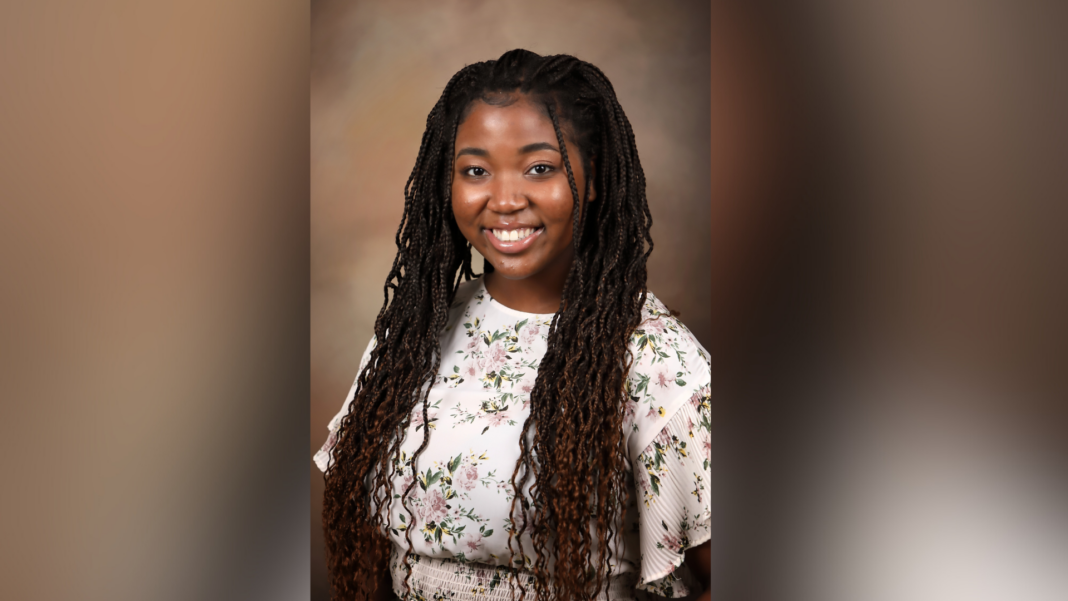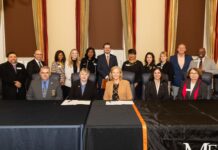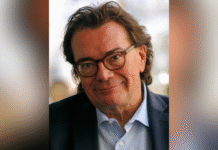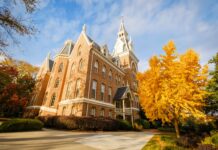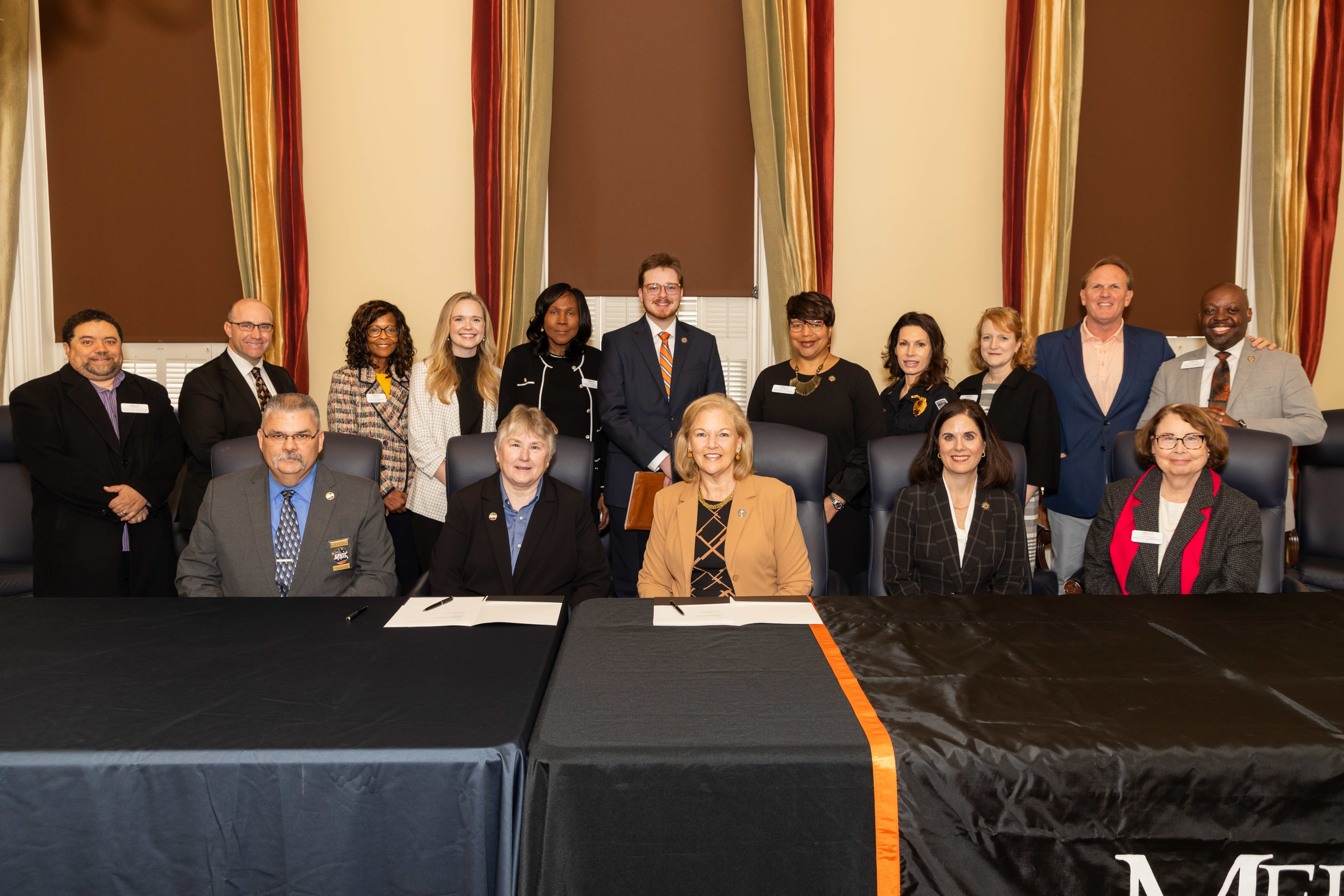Mercer University senior Aylah Birks says participating in an American College of Physicians (ACP) internship program this summer in Washington, D.C., was invaluable in exposing her to the relationship between public policy and health care.
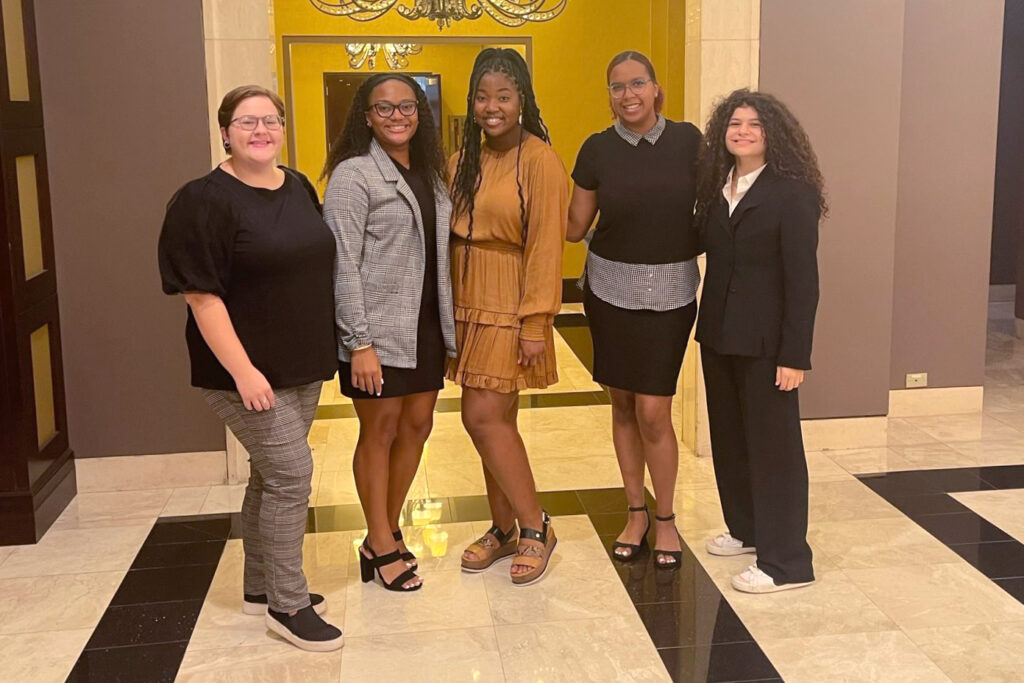
Birks, a neuroscience major from Dry Branch, was chosen for The Ryan Mire, M.D., Summer Internship Program and spent two months in Washington working in the ACP’s public policy and regulatory affairs department. The goal of the internship is to introduce students interested in public health to all the factors that influence the health care system and to diversify the field as a whole.
“I think that we often get this sense that medicine or health care has a lot to do with the patient’s interaction with the doctor, or the health care professional in the hospital, or whenever you have a doctor’s appointment,” Birks said. “But nobody really thinks about the implications of legislation, what happens behind those closed doors with lawmakers, legislators, the Senate, Congress, House of Representatives, as well as health professionals, and how that information gets out there to people.”
Birks also had the opportunity to tour health care facilities and medical schools in the area and speak to companies and firms that are involved in the public health process. She said being in the nation’s “epicenter of policy and regulation” was a big adjustment, but ultimately provided her with an exciting opportunity to learn from health professionals and to network.
“It’s one thing to go somewhere and you’re a complete stranger and you don’t feel welcome, but when you see so many people that have been in your shoes — taken the MCAT, taken the placement test, gone through the macro and microaggressions — and they’re welcoming you into a space where they genuinely want you to learn, to thrive, I think that’s another reason why I chose ACP, just them off the bat welcoming me and being genuinely interested in me as a person and my story,” Birks said.
Birks said the Ryan Mire program was important to her because it allowed her to see the value of diversity in the health care field in real time. The experience also made her feel confident about entering internal medicine and choosing her own career path.
The ACP’s dedication to promoting diversity and equity is a value that resonates deeply with Birks, as she believes they are essential to serving communities. Community service and engagement, to her, is crucial in addressing the deeper social issues that affect public health.
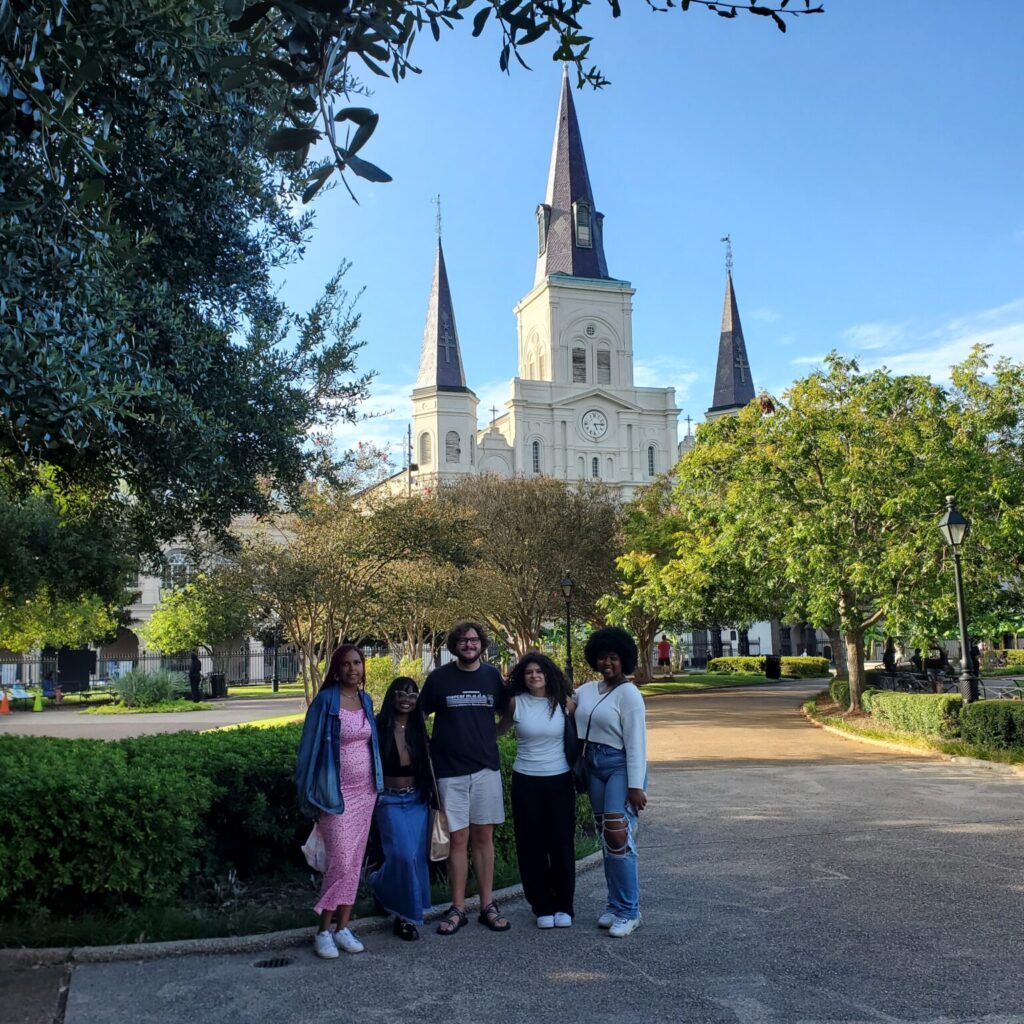
“We all have different life experiences. And I think that when you start looking at an industry like the medical industry or health care field, you begin to see how no person or no story is really the same, and you begin to champion that.”
Prior to the program, Birks’s long-term goal was to work in surgery and research conditions that affect the nervous system, but the ACP program has opened her eyes to the broad range of careers available in internal medicine.
“Your career as a physician doesn’t necessarily have to stop with patient care. You can go back and teach, you can do research, you can go into consulting, you can own your own biotech firm. You can use your degree to start up different clinics for wellness, mental health, sexual health, whatever you would like to do,” Birks said.
With the sponsorship of Dr. Earl Stewart, the College of Liberal Arts and Sciences and ACP, the cost of her internship was covered. Birks said the support of her professors and the culture of asking questions at Mercer helped her to better prepare for the program.
“For me, it was just developing those deep connections with my professors and them encouraging me to be better than what I was yesterday, be better than what I was the previous semester, be better than what I was the previous year,” she said.
The Mercer tradition of majoring in changing the world is one that Birks says she carries with her wherever she goes, whether it’s Macon or Washington, D.C. She believes that her roots in Mercer make her even more inspired to create connections in her community to help end systemic issues.
“We major in changing the world. We’re changing the world in those small things, reaching back into our community and living in those communities,” she said. “We’re changing the world by talking to our neighbors and not being afraid because they’re not from the same socioeconomic status as us. They’re not from the same educational background. We’re changing their world, and at the same time, they’re changing our world.”

